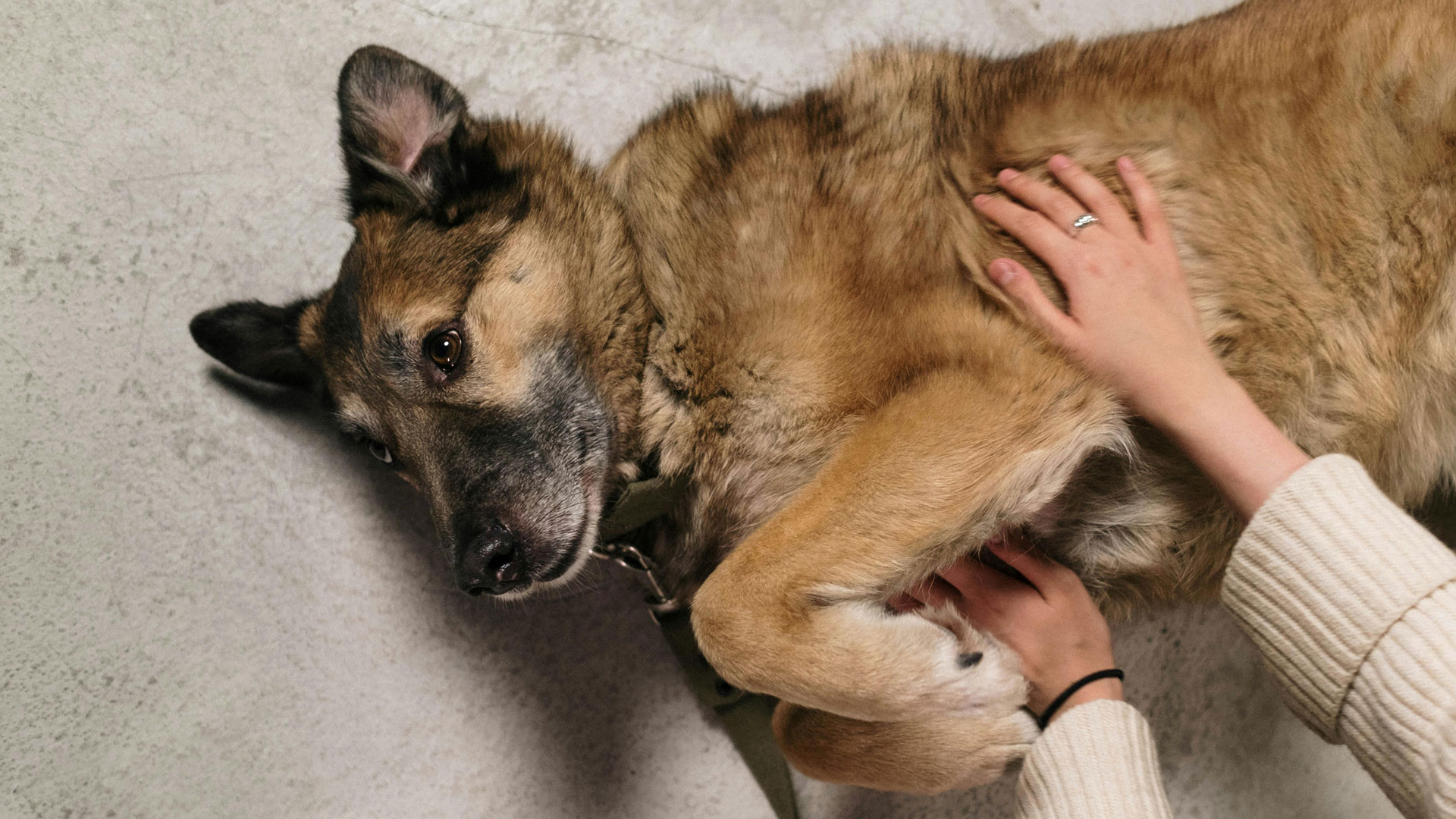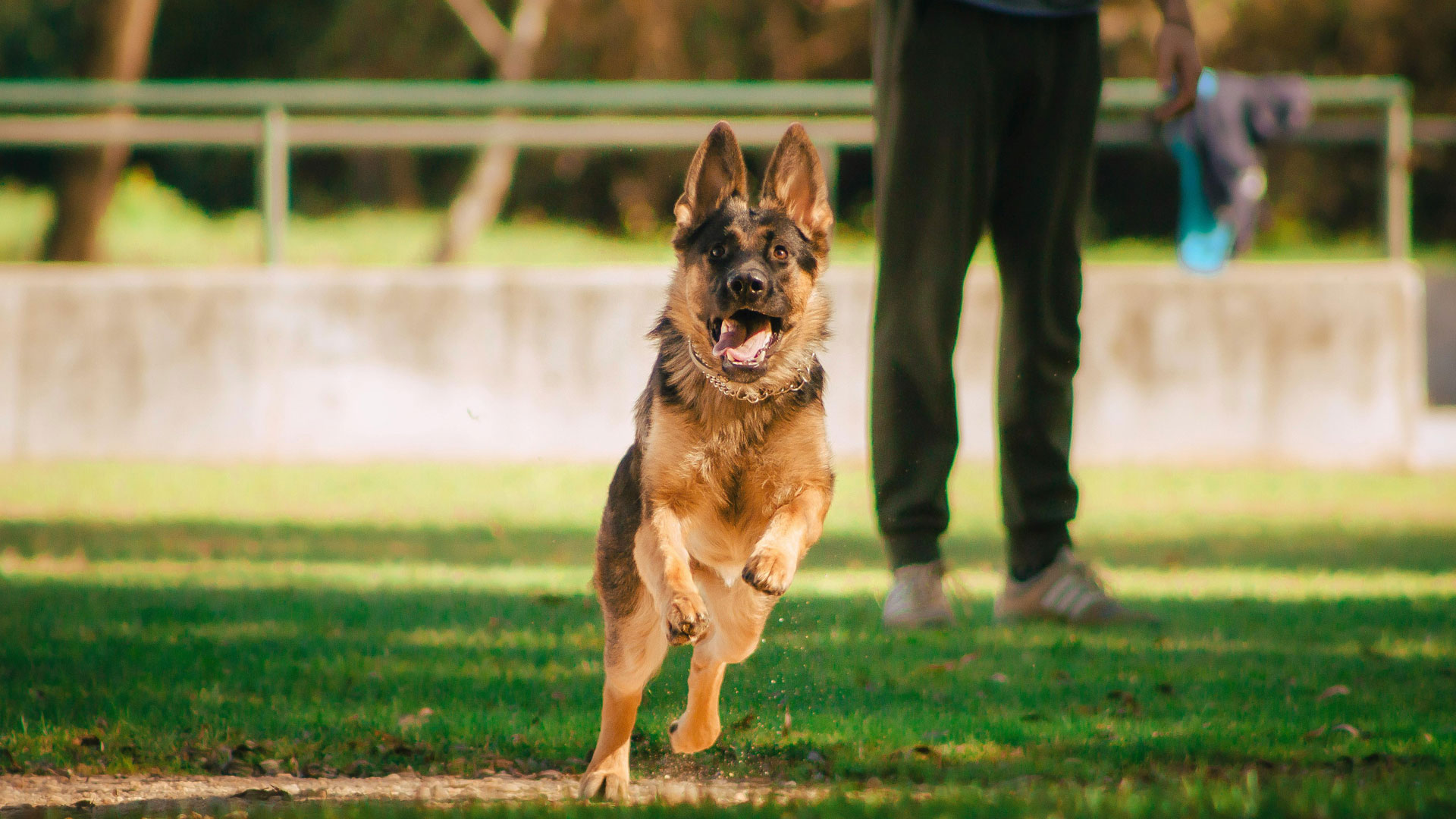Have you ever thought about why German Shepherds are used by police, in rescues, and to protect families? It’s because they’re incredibly smart, fiercely loyal, and full of energy.
These amazing dogs are fast learners and love having a job to do. But without proper German Shepherd training and care, you might raise a dog that’s hard to control, unhappy, and not living up to its full potential.
This article will help all dog owners with easy steps to train and care for their furry best friend.
Why is understanding a German Shepherd’s behavior important?
Knowing about a German Shepherd’s behavior helps you be a better owner. These dogs have natural instincts, like protecting their family and being alert, which shape their temperament.
If you overlook this, you may have to face their common behavior problems, like being aggressive or anxious. Plus, they also need socialization. This means they should meet different people, dogs, and places when they are young.
Once you understand their behavior, it becomes easier to train and care for your German Shepherd properly, ensuring they grow up healthy, happy, and safe.

The Winning Ways to Train and Care for a German Shepherd
When you welcome these companions in your life, consider the following go-to ways to train them:
1. Choose the right training environment
The first step in training is choosing the right environment for your pup. That means you should start training in a quiet, familiar place where your dog feels safe, like your home or backyard.
Avoid noisy or crowded spots at first. It’s just because they can distract your dog and make learning harder. As your dog gets better, then slowly introduce new places with more distractions to help them focus anywhere.
A calm and consistent environment helps your dog learn faster and builds their confidence.
2. Give basic obedience training
Basic training turns a playful pup into a loyal partner. It starts with teaching simple commands like “sit,” “stay,” “come,” “down,” and “heel.” Use a calm voice every time they get it right.
Leash training is another part of this game. When they start walking beside you without pulling, reward them right away. Crate training is no exception. It gives your dog a safe, comfy space and helps them stay calm when alone.
Lastly, housebreaking makes the pups understand where home rules begin and accidents end. For that, you should stick to a regular feeding and potty schedule and always reward them after they go outside.
3. Get a Nutrition & grooming plan
Feeding your dogs the right food is a key part of their care. You can visit a vet to get the best food plan for German Shepherd puppies, adults, and seniors.
Their diets must be tailored to their age and activity. For example, puppies may eat 3-4 small meals daily, adults twice a day, and seniors might need smaller portions with more fiber.
Along with proper nutrition, grooming is a must-have. With regular German Shepherd grooming in Ontario , you can keep your dog’s coat healthy, reduce shedding, and spot any skin problems early.
4. Implement socialization strategies
Socialization opens a world of confidence and kindness in every dog’s heart. To achieve that, you can start by gently introducing your dog to different people and other animals.
When they interact with children and other pets, watch carefully, and guide them gently to avoid any problems. Taking them to a variety of environments like parks, busy streets, or quiet homes helps them become familiar with new sights, sounds, and smells.
This gradual exposure helps prevent fear and builds a friendly, adaptable companion.
5. Address common behavioral issues
Many dog owners face common issues like excessive barking, chewing, and digging. Do you know why does this happen? It often comes from boredom or stress. For that, you can give your dog plenty of exercise and engaging toys to keep their mind active.
German Shepherd separation anxiety is another challenge. It happens due to distress when left alone. To fix this, gradually increase alone time and create a comforting space with familiar smells.
Aggression or fearfulness may show up too. That’s why, experts suggest that early socialization and gentle, positive training help your dog feel confident and calm.
6. Use positive reinforcement & stay consistent
Dogs also love appreciation just like humans. That’s why, positive reinforcement works wonders in training. For example, rewarding good behavior with treats, praise, or play helps your dog trust you.
But remember, training takes time. Patience and persistence are key here – don’t expect overnight results. Stick to a routine and use the same commands every day to avoid confusion.
When you stay consistent, your dog understands what’s expected and feels secure. Over time, your efforts will shape a well-behaved and confident companion, and you will feel proud to train and care for your German Shepherd.
CutePetsTips: Your Shortcut to Stress-Free Dog Care
If you’re raising a dog in Ontario, CutePetsTips is your trusted go-to resource for expert advice that’s easy to understand and put into practice. It covers all the important areas like nutrition, training, grooming, and health care.
Our sole mission is to help you build a strong, happy, and healthy bond with your furry friend. That’s why the pet care tips we share are simple and manageable. You won’t feel overwhelmed – instead, you can focus on enjoying every moment with your dog.
Subscribe to our blog to stay updated with the latest tips for your Canine.
FAQs
What are the best methods for German Shepherd Training & Care?
The best methods for German Shepherd training and care include creating a calm, familiar environment for learning, especially in the beginning. Focus on basic obedience commands like sit, stand, and run and use positive reinforcement like treats and praise. Proper nutrition, regular grooming, and early socialization are also essential. Address behavioral issues with patience and always offer mental and physical stimulation to keep your dog happy and healthy.
Why should you understand your German shepherd’s behavior?
Understanding your German Shepherd’s behavior helps you train and care for them the right way. For example, if they bark at strangers, it’s their protective instinct – not just bad behavior. Knowing this helps you guide them better and raise a calm, friendly dog.







